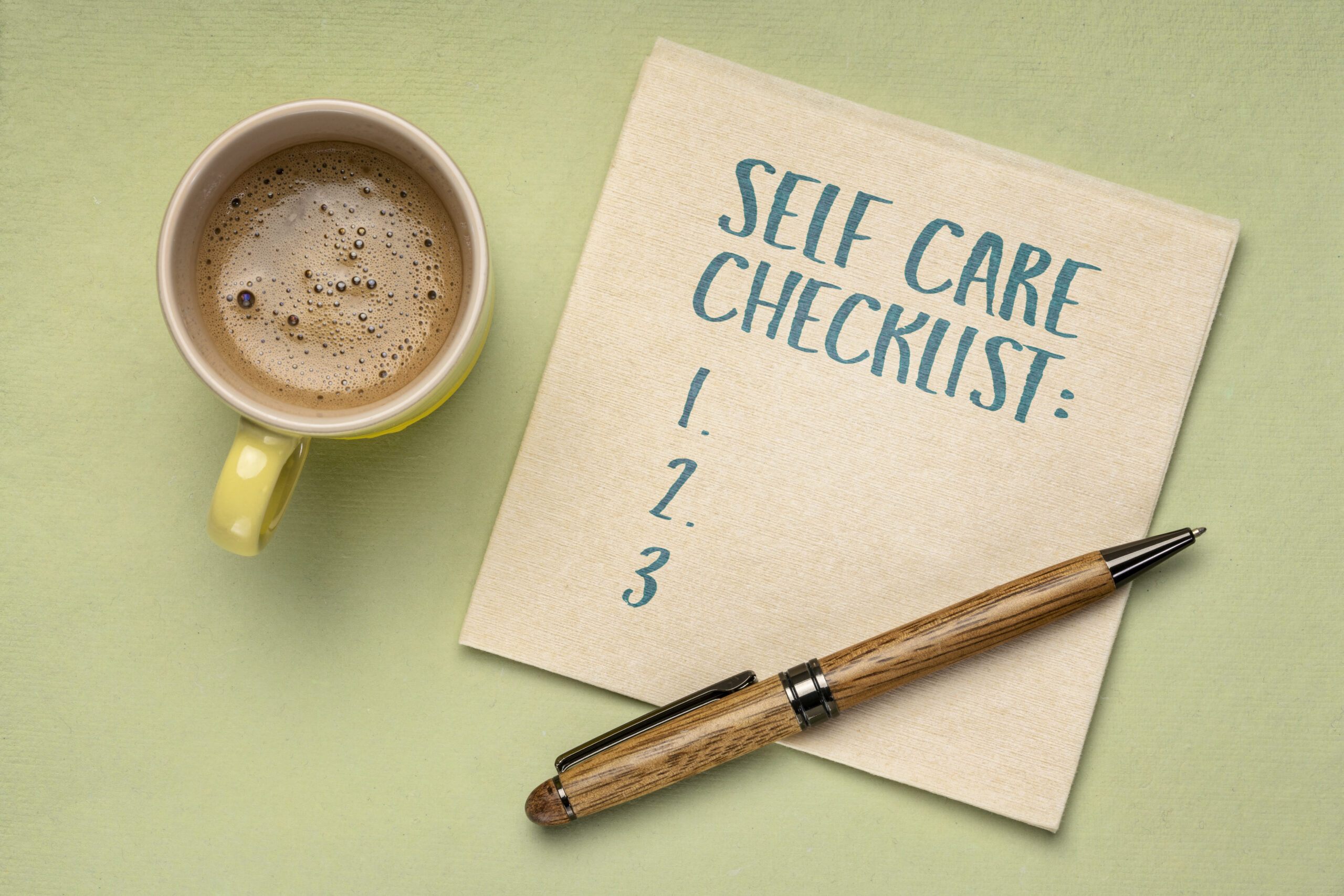Nurses, surgeons, doctors…all healthcare professionals lead busy lives. The mental and physical demands of their work can be challenging and extremely tiring.
The paradox of being a healthcare professional is that even though we care for others, we often lose sight of our health and habits among our busy day-to-day lives. You may feel like you lack the time to eat wholesome meals or get a full night’s rest. Over time, however, these unhealthy habits can lead you to feel sluggish and clumsy. Though it is entirely unintentional, it can negatively impact your job performance.
This is why it is so critical to practice self-care. Taking care of yourself, both physically and mentally, can help you stay alert, focused, and energetic on the job. Here are five key areas to focus on as you develop your self-care routine.
Manage stress levels
We may not be able to avoid stress in our lives; luckily, there are many different techniques to reduce stress. Whether you choose relaxation, meditation, or prayer, all have benefits in calming the mind and body. Taking time to yourself can provide you with the opportunity to recharge and prepare for a new day.
- Relaxation Techniques. Deep breathing exercises, listening to music, or practicing mindfulness are all ways to reduce stress in our lives. You can try this alone or in combination with meditation or prayer.
- Meditation. Like religion, there are many schools of thought when it comes to meditation. In the beginning, it may be more beneficial to start with guided meditation. Spend a few minutes meditating every day; whether you do it in the morning or evening—or whenever you can spare a few minutes—meditating will help you manage your stress.
- Loving-kindness. This is another form of meditation where you direct well wishes and love towards others. By exercising empathy and compassion, you may be able to reduce stress and have more meaningful, positive interaction with patients, family, and friends.
- Prayer. Any type of prayer from all religions can have a positive impact. Even prayers for others can evoke the same benefits as loving-kindness meditation by exercising our empathy and compassion.
No technique is better than another. Choose the method you are most comfortable with to see the greatest rewards. Remember that to attain balance in life; you must constantly work towards it. How often does a tightrope walker think about balance? All the time! It is the same for us, as we develop healthy routines.
 Exercise on a regular basis
Exercise on a regular basis
You know that a lack of physical activity increases the risk of high blood pressure, stroke, and other symptoms of poor health… but it can be hard to find time to go to a gym. The good news is that you don’t need a gym to get moving. If you are short on time, an at-home work out regime will still benefit your health. Try push-ups, pull-ups, lunges or squats, and abdominal exercises. Or, try kettlebell swings for a full body work out.
It’s important to include some cardiovascular exercise to promote blood flow to the brain and strengthen the heart. Incorporate jumping jacks or jump roping if you don’t have time for a jog or swim.
Stretches can also be beneficial if you are on your feet all day. Try a yoga application on your phone or watch videos on Youtube, if you don’t have a gym membership. These will guide you through the correct poses as you stretch.
Eat a balanced, varied diet
One of the most important things is the fuel we put into our bodies. When you’re on the go, it can be easy to grab the nearest candy bar for a quick, sugary pick-me-up—but that short-term high is not worth the harm it is doing to your mind and body.
If you have time, plan a grocery trip once a week to buy fresh fruits and veggies. Bring healthy snacks—like apples, cheese, or nuts—to snack on when you’re short on time at work. These foods will give you the long-lasting, sustained energy you need, without the crash, which is especially beneficial for longer shifts.
If you are someone who skips eating entirely, try adding some snacks into your day. In reality, eating a portion of nuts or a sandwich only takes a few minutes, and it will give you some well-deserved energy.
If your schedule is unpredictable, or very busy, try to set aside time once a month to cook meals in bulk and freeze them. Later on, when you are tired after a long day, you will be able to get home and pop a premade (but homecooked!) meal into the microwave, pot, or oven for a healthy, tasty meal.
Quit bad habits
Smoking, drinking, and other unhealthy habits may provide short-term, instant relief in managing stress. But the long-term, physical effects of these habits can wear out your body and mind over time. As is the case with anything we ingest, we should take care to provide our body with good fuel for long-lasting energy.
Grabbing drinks with friends can be a time to socialize and de-stress. Try limiting your alcohol intake to 1 to 2 glasses, and try not to drink every day. You’ll soon find that you can have fun without drinking as much.
If you smoke and enjoy the idea of a “smoke break”, replace that with something else equally enjoyable; use that time to take a quick walk, eat a snack, or call a friend or family member.
Get a good night’s sleep
Sleep is important, and it can make a big difference in how clear-headed you are the next day. You need to be alert and effective in your decision-making and how you diagnose and treat patients.
Sleep is very closely tied to the above suggestions. When you reduce stress in your life, exercise regularly, eat a healthy diet, and quit bad habits, you will notice that your sleep is more restful.
If you replace sugary foods and processed carbohydrates with food that gives you long-lasting energy (like protein-rich foods, fruits, and vegetables), your body will be able to enter into the deeper phases of sleep without interruption, giving you a more restorative night’s rest. Along with quitting smoking, it is a good idea to minimize your intake of caffeine, which can act as a stimulant to disrupt your sleep cycle.
Avoid fragmenting your sleep by taking naps during the day. If you are experiencing sleep problems, consult your primary care physician.
What are the next steps?
After looking at the tips above, assess how you are doing in each category and determine where you would most like to see improvements. It may be especially effective to do a mental scan of your body each day, starting at your head and working your way down. Notice if any part of your body is sore or tired, and pay that area some extra love and attention. If your back or feet are hurting, you may need to invest in new shoes or more supportive soles.
Come up with a plan on how you are going to achieve your goals. If you plan on eating healthier, set aside time once a week or once a month for preparing meals that you can freeze and eat later on, or for grocery shopping for fresh fruit and vegetables. Start gradually, and track your progress.
Evaluate your progress towards your goals. If your goals are too big, scale back. As you continue towards a healthier life, your new routines will become habits, and you can continue to improve your life.
After all, we all just want the best for our patients. Shouldn’t we take care of ourselves too?
At NurseRegistry, our mission is to match professional, licensed, and compassionate nurses with private clients at home and facilities in need of staffing solutions. Since 2009, we have been raising the bar in skilled nursing care, with the goal of promoting the health, independence, and quality of life for our patients, while maintaining patient safety and privacy. Each patient’s situation is unique, and we are committed to matching nurses that are best suited to our client’s changing needs. To learn more, visit NurseRegistry.com.
References:
[1] Carlson, BSN, RN, NC-BC, Keith. “5 Simple Self-Care Practices For Busy Nurses. We’re Not Talking A Spa Day.” Nurse.org, 24 Feb. 2017, nurse.org/articles/5-steps-to-nursing-wellness/.


Thank you!
You are welcome. And if you’re in the field, be especially careful over the holidays – it’s easy to overdo anytime, but even moreso in November and December.